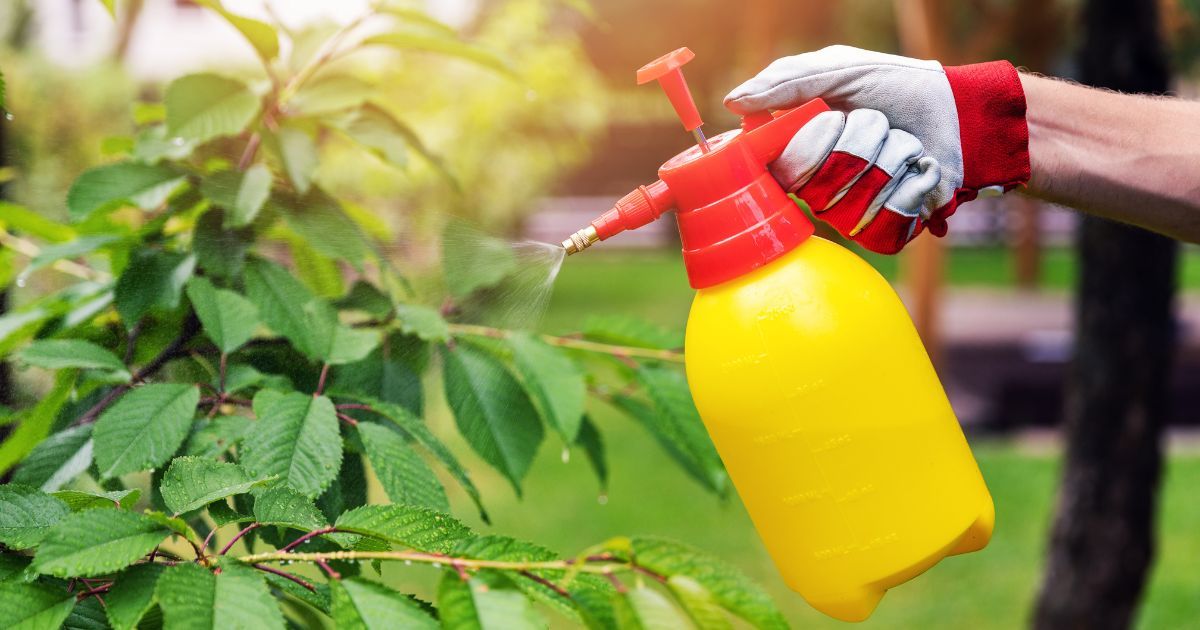Summer Pest Control Tips
The summer months are some of the most fun-filled times of the year. During this popular season, your schedule will likely be filled with family picnics, beach trips, and other exciting outdoor activities. However, just as you’re stretching out in your lawn chair for a relaxing backyard tan, other tiny creatures are also coming to life, ready to suck out (literally) some of the fun.
The hot weather brings a rise in the number of pests around your home. In this article, you’ll learn summer pest control tips in Charleston, SC to keep out mosquitoes, ticks, wasps, hornets, spiders, rodents, and more.
Why Do Pests Love Summer?
Pests thrive in summer for several reasons:
- Temperature Changes: Most pests love warmer temperatures. Therefore, the summer months herald an increase in their activities. On the flip side, some pests will enter your home to avoid the heat outdoors.
- Higher Humidity: Many pests thrive in high-humidity environments, which is what we experience in the summer. Add the summer rains, and the pests have highly favorable conditions to thrive. When the outside air starts to feel dry, some of these pests will find their way into your home in search of moisture.
- Longer Days: Summer means more daylight. It also means pests spend more time looking for food.
- More Food Sources: Vegetation grows faster in the summer months. We are also likely to litter the landscape with edible waste (think leftovers from barbecue nights and poor trash handling). Therefore, summers are like an endless buffet for pests. Some of them will work harder during these months to store food away for winter hibernation. This increases the chances of running into them.
- Breeding Cycle: Summer is the busiest portion of many pests’ life cycles. Therefore, they will reproduce rapidly around this time to increase their population before the winter freeze.
Top Summer Pest Control Tips
The summer season is filled with various activities, and our team wants you to fully enjoy it! The Anchor Environmental team is full of experts and here to help with pest control in Charleston, SC and surrounding areas. Below are ways homeowners can take action and control pests such as mosquitoes.
Keep Your Indoor and Outdoor Spaces Clean
A dirty environment attracts pests. Therefore, leaving plates in the sink or food waste lying around the kitchen or anywhere else around your home will draw the attention of pests like ants, rodents, roaches, and houseflies. Remember, it only takes one pest finding the waste to bring the others.
Remove All Sources of Stagnant Water Around Your Home
According to the CDC, standing water is a key part of the reproductive cycle for pests like mosquitoes. Their eggs need moisture to hatch. Therefore, eliminating standing water around your home is one of the surest ways to reduce the mosquito population.
Old tires, hollow furniture, outdoor HVAC units, toys, birdbaths, and play pools are some of the points where stagnant water can collect around your home. You should also look around your property after a storm to check for drainage problems. If you have standing water around low-lying parts of your yard, you should consider drainage solutions.
Check Your Outdoor Furniture
Pests like spiders and wasps can quickly settle into your outdoor furniture. Before you get back to using the furniture on your patio or deck for the summer, inspect it and spray it with repellents to keep pests at bay.
Plug Gaps
Pests are adept at finding entryways into your home. You should make it as hard as possible for them to do so. Replace the weatherstripping around your windows, fix all cracks and crevices on your walls, and ensure your windows and doors close tightly. Plugging these gaps doesn’t just keep out pests; it also keeps the cool air from your air conditioner from escaping outside.
Empty Your Garbage Bin Regularly
Pests like ants can sense food waste from far away because their sense of smell is four to five times stronger than other insects. Similarly, some of them can remember the smell of specific foods for the rest of their lives. Therefore, it’s a good idea to ensure your organic waste never sits in your garbage bin for more than a day or two. If you must store food waste for over two days, tie it off in an airtight bag.
Store Firewood Properly
Leaving piles of firewood carelessly across your property is a sure way to attract pests like termites and carpenter ants. These insects spread quickly. Once they establish a presence, they can grow well into the thousands by the next summer. Starve them of wood, and be sure to call our professionals the minute you notice them in your yard. Otherwise, they will progress to causing structural damage around your home. The Anchor Environmental team specializes in termite control in Charleston, SC and surrounding areas to help protect your home.
Mow Your Lawn
Since grasses and shrubs grow faster in the summer, creating a routine for keeping the vegetation around your property short is important. Overgrown foliage will only attract more pests to your home. Make it a habit to mow your lawn every two weeks. You should also trim shrubs, branches, and trees to ensure they don’t encourage the growth of insects and other pests.
It’s also a good idea to evaluate the types of plants you have in your yard. Some species are attractive to certain pests, so knowing the difference is key. You should also consider growing plant species known to prevent insects like mosquitoes from swarming your yard. These include catnip, lavender, basil, and peppermint.
Take Advantage Of Our Pest Control Solutions
Sometimes, the best approach to pest control is to call in the experts. While the above solutions work well, there’s only so much you can do if you already have a thriving pest population. In that scenario, it’s best to hire a pest control service in Mount Pleasant, SC like us here at Anchor Environmental.
We eliminate pests from all corners of your home by combining liquid and granular pest control treatments. We’ll remove existing nests, treat cracks and crevices, and treat your doors and windows. We offer both one-off and recurring pest control treatment in Daniel Island and surrounding areas. Visit our services to learn more about the pest control services our expect technicians at Anchor Environmental can offer.
Call Anchor Environmental today at 843-906-9457 for long-lasting summer pest control in Charleston, SC, and the surrounding areas.


